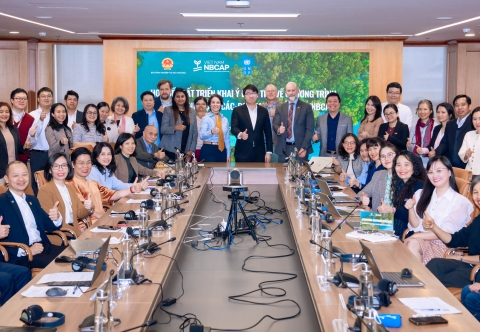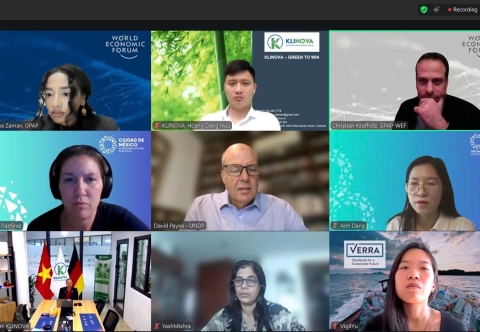The event took place against the backdrop of Vietnam facing a dual challenge: meeting energy demand to sustain rapid economic growth while fulfilling its commitments to green transition and emissions reduction.
At the forum, experts focused on three major issues: pressure on energy infrastructure, policy barriers, capital mobilization, and technology choices. Analyses revealed a challenging landscape but also opportunities for breakthroughs if comprehensive solutions are implemented.
Associate Professor Dr. Bui Quang Tuan highlighted the lack of synchronized transmission infrastructure for renewable energy development, causing many projects to operate at only 30-40% of capacity, resulting in significant waste. He proposed developing an electricity transmission market that allows private sector participation to mobilize social resources while ensuring energy security.
From a financial and legal perspective, Dr. Le Xuan Sang noted that more than 2,200 projects are currently stalled, with an estimated total investment of VND 6 quadrillion. He recommended diversifying financial sources through the private sector, new-generation FDI, climate funds, and green bonds, while improving foreign exchange mechanisms, resolving FIT pricing issues, and streamlining procedures to mitigate legal risks.
On the technology front, Mr. Ha Dang Son stated that no single energy technology is absolutely optimal. He suggested that Vietnam develop a diversified energy mix and explore new models such as hybrid systems combining wind, solar, and tidal power, as well as small modular reactors (SMRs). He emphasized that energy infrastructure investment must “take the lead,” similar to transport infrastructure, to lay the foundation for economic growth.
Participants at the forum agreed that energy transition is not just a technical solution but a prerequisite for achieving sustainable growth. Vietnam possesses world-class renewable energy potential, but to turn this potential into reality, the country must pursue policy reform, diversify funding sources, adopt advanced technologies, and develop a high-quality workforce. The overarching message was clear: only when “electricity goes first” can Vietnam turn challenges into drivers of progress and rise in the era of green transition.
 Meeting to propose the implementation of the Letter of Intent for the National Green Carbon Action Partnership Program (NBCAP)
Meeting to propose the implementation of the Letter of Intent for the National Green Carbon Action Partnership Program (NBCAP)
 Online Workshop on the Financing Roadmap for Plastic Action to 2030: Mobilizing USD 8.5 Billion for Viet Nam’s Circular Economy
Online Workshop on the Financing Roadmap for Plastic Action to 2030: Mobilizing USD 8.5 Billion for Viet Nam’s Circular Economy